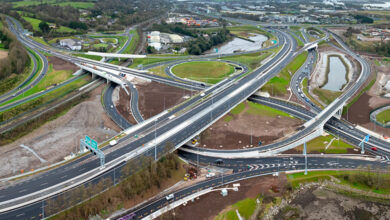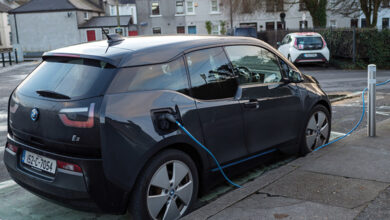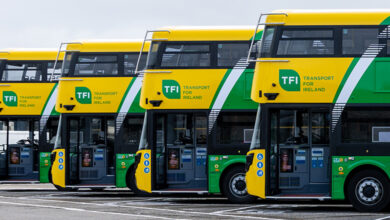Compressed Natural Gas: Key to net-zero commercial transport
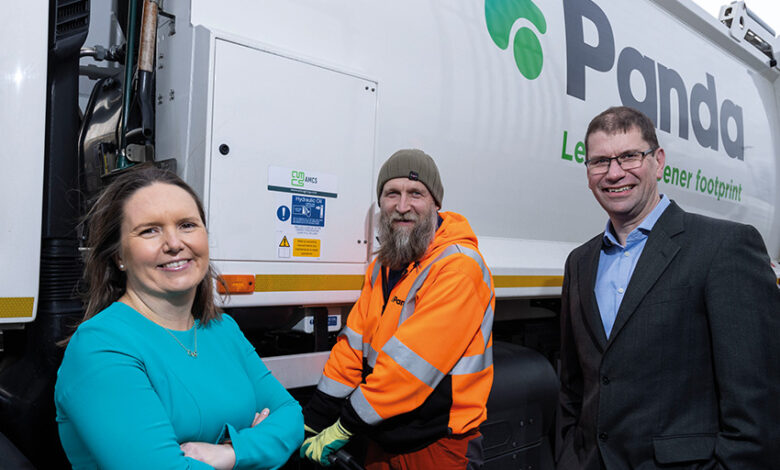
Ireland faces a significant challenge to meet its emission reduction targets, particularly in the transport sector, as it currently accounts for 42 per cent of Ireland’s energy use, making it the country’s largest source of energy demand. It is also one of the most difficult sectors to decarbonise.
Compressed Natural Gas (CNG), reliably delivered through the national gas network, is key to driving sustainable supply chains and is the first step towards net-zero commercial transport in Ireland.
CNG is natural gas that has been compressed and stored at high pressures (over 200 bar) and is typically used as a transport fuel. It is particularly suitable for use in commercial vehicles where electric solutions are not a viable option. The gas used can be either natural or renewable gas that meets the network specifications, providing a pathway to more sustainable transport.
Ireland’s network of CNG stations
Gas Networks Ireland is working to expand the number of CNG stations in Ireland. This cleaner transport network will provide Ireland’s heavy goods vehicle (HGV) and bus fleet operators with a cleaner alternative fuel option to diesel.
There are four Circle K forecourts that have a CNG dispenser: Ballysimon Road, Limerick; Cashel, County Tipperary; and Clonshaugh and Dublin Port in Dublin. These four were constructed as part of the Causeway Project. Each station has the capacity to fill up to 50 HGVs a day, with each fill taking no more than five minutes.
The Causeway Project was developed to kick-start the market and to build the first public stations in Ireland. There is now a pipeline of additional public CNG stations progressing through the design, planning and construction project phases.
The expansion of the number of CNG public stations is underway and Gas Networks Ireland expects to have five more operational by 2024.
BioCNG: Carbon neutral fuel
In November 2022, Gas Networks Ireland and Circle K took another step forward in reducing emissions from Ireland’s transport industry by dispensing BioCNG at the four CNG stations.
BioCNG is carbon neutral biomethane gas which is compressed to fit into a vehicle’s tank and is available for HGVs at Circle K’s forecourts in Ballysimon Road, Cashel, Clonshaugh, and Dublin Port.
Ireland’s commercial transport fleet makes up just 3 per cent of vehicles on the road nationwide yet is responsible for approximately 20 per cent of transport’s carbon emissions. HGVs operating on 100 per cent BioCNG can achieve zero carbon emissions.
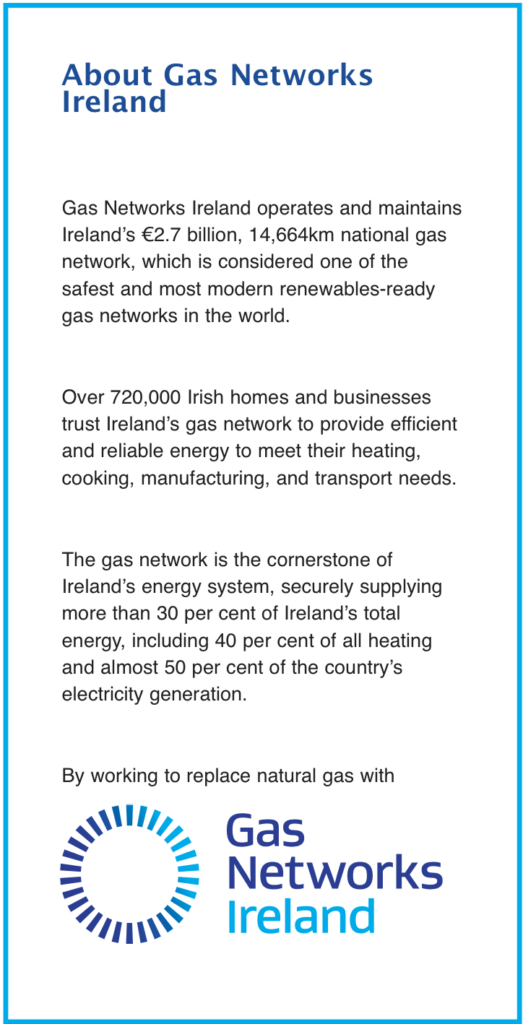
Sustainable supply chains
There is increasing demand from the transport sector for more decarbonised customer supply chain solutions. Being able to offer a lower-carbon transport solution is a strong differentiator for any business and it demonstrates a focus on sustainability when tendering for new business. With almost two million CNG vehicles across Europe, indications are that growth in Irish fleet operators adopting CNG vehicles as an alternative fuel option will continue.
Gas Networks Ireland’s Head of Business Development, Karen Doyle, says there has been significant growth in demand from businesses looking to source fuel alternatives in order to develop sustainable supply chains.
“While electricity is a proven alternate fuel for cars, electric solutions are not a viable option for use in heavy goods commercial vehicles, however CNG and BioCNG are, and are being used by fleet operators throughout Europe. We are very excited to work with Circle K in offering the option of this carbon neutral fuel to fleet operators in Ireland,” Doyle says.
“In the six months that BioCNG has been available at the four Circle K outlets, almost 1,900 tonnes of carbon emissions have been saved, equating to over 1.9 million carbon neutral kilometres. Cleaner carbon neutral renewable gas will help Ireland reduce its reliance on imported fossil fuels and help to decarbonise Irish businesses, transport, and supply chains. By gradually replacing natural gas with renewable and carbon neutral gases such as biomethane and hydrogen, Ireland’s transport sector can be powered by increasingly cleaner fuel.”
Circle K’s Senior Director Fuels, Jonathan Diver says:
“Working with Gas Networks Ireland, we began making a low carbon fuel alternative for commercial vehicles available with the introduction of compressed natural gas (CNG) in 2019. While CNG can reduce a HGV’s emissions by up to 22 per cent, BioCNG can turn it into a carbon neutral vehicle.”
“Circle K is Ireland’s leading fuels supplier to the commercial transport and freight industry, and a key priority of ours is supporting this sector as it endeavours to reduce its carbon emissions in addition to providing the other necessary goods and services, they require. Expanding and innovating our network of CNG refuelling stations as well as continuing to develop our EV charging facilities are both key elements within our overall sustainability agenda and we intend to make further progress in this regard in the months and years ahead.”
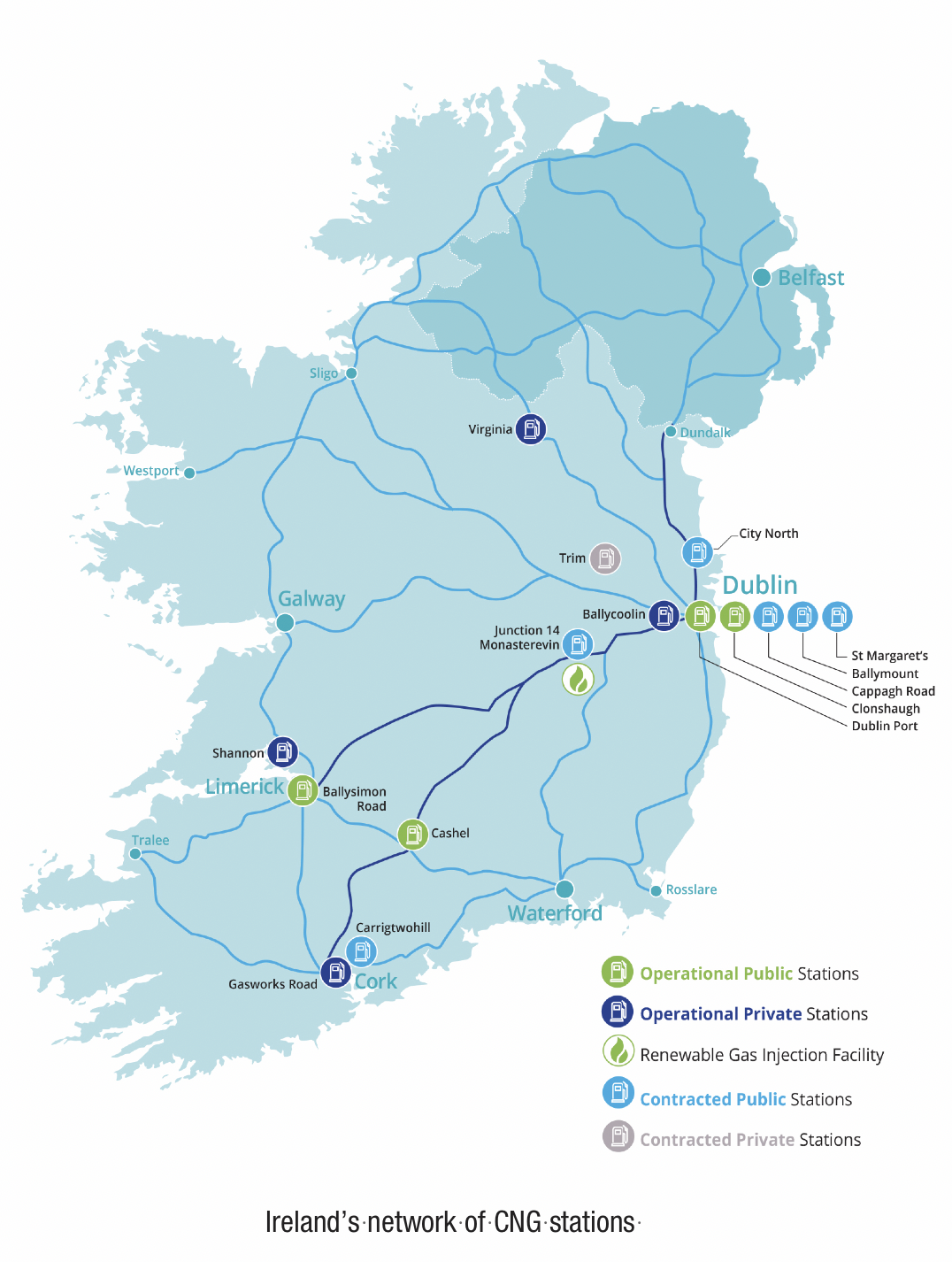
Biomethane – from farm to freight
Structurally identical to natural gas, biomethane is a carbon neutral renewable gas that can be made from farm and food waste through a process known as anaerobic digestion.
Biomethane is fully compatible with the national gas network and existing appliances, technologies, and vehicles. It can seamlessly replace natural gas to reduce emissions in heating, industry, transport, and power generation, while also supporting the decarbonisation of the agri-food sector.
Gas Networks Ireland first introduced domestically produced biomethane onto Ireland’s gas network more than three years ago. In 2022, Gas Networks Ireland transported 41GWh of biomethane in the national network. It is beginning to seamlessly replace natural gas and is fully compatible with existing appliances and technology.
Biomethane injected into Ireland’s gas network can be transported to forecourts which have a CNG refilling station. Where the biomethane is certified by an EU Voluntary scheme as meeting the sustainability and greenhouse gas reduction criteria set out in RED II, it is fully renewable. This renewable gas is a zero-emissions fuel in the transport sector and qualifies for the Renewable Transport Fuel Obligation (RFTO) operated by the National Oil Reserves Agency (NORA).
Gas Networks Ireland’s Renewable Gas Registry tracks the allocation of the biomethane from the point of injection into the grid to the point of withdrawal at individual refuelling stations. A proof of origin certificate issued by the registry completes a mass-balance check between injection and withdrawal from the grid.
There is significant scope for biomethane production in Ireland. With the European Commission identifying Ireland as having the highest potential per capita to produce biomethane, it will also play a major role in Ireland and the EU’s commitment to becoming an energy-efficient, low carbon economy. An indigenous biomethane industry would not only support the decarbonisation of the agricultural sector, but it would also provide significant opportunities for rural communities and facilitate sustainable circular economies.
To prepare for increased biomethane connections and injection, Gas Networks Ireland is developing a coordinated gas network plan, which will outline the development of the gas network to bring biomethane to over 720,000 homes and businesses across the country in the most efficient and effective manner.
CNG vehicle grant scheme
To help Ireland’s fleet operators and hauliers transition to cleaner, affordable CNG vehicles, Gas Networks Ireland has a CNG Vehicle Grant Scheme which provides grants of up to €5,000 for new CNG vehicles, up to maximum of €60,000 per business.
The CNG Vehicle Grant Scheme is co-financed by the European Union’s TEN-T Programme under the Connecting Europe Facility as part of the Green Connect Project. Applications are now being accepted at: www.gasnetworks.ie/cngvehiclegrant
Toner Transport & Logistics
Dublin-based, Toner Transport & Logistics became the first company to successfully secure a grant through Gas Networks Ireland’s current CNG grant scheme and are now able to provide customers with a more sustainable service and reduce carbon emissions in supply chains.
As a business operating for four generations, the move to CNG means that, as the volume of renewable gas on the network increases in the years ahead, Toner Transport will be able to transition to an even more sustainable transport solution without further investment, increasingly reducing emissions and maintaining a competitive advantage for many more generations to come.
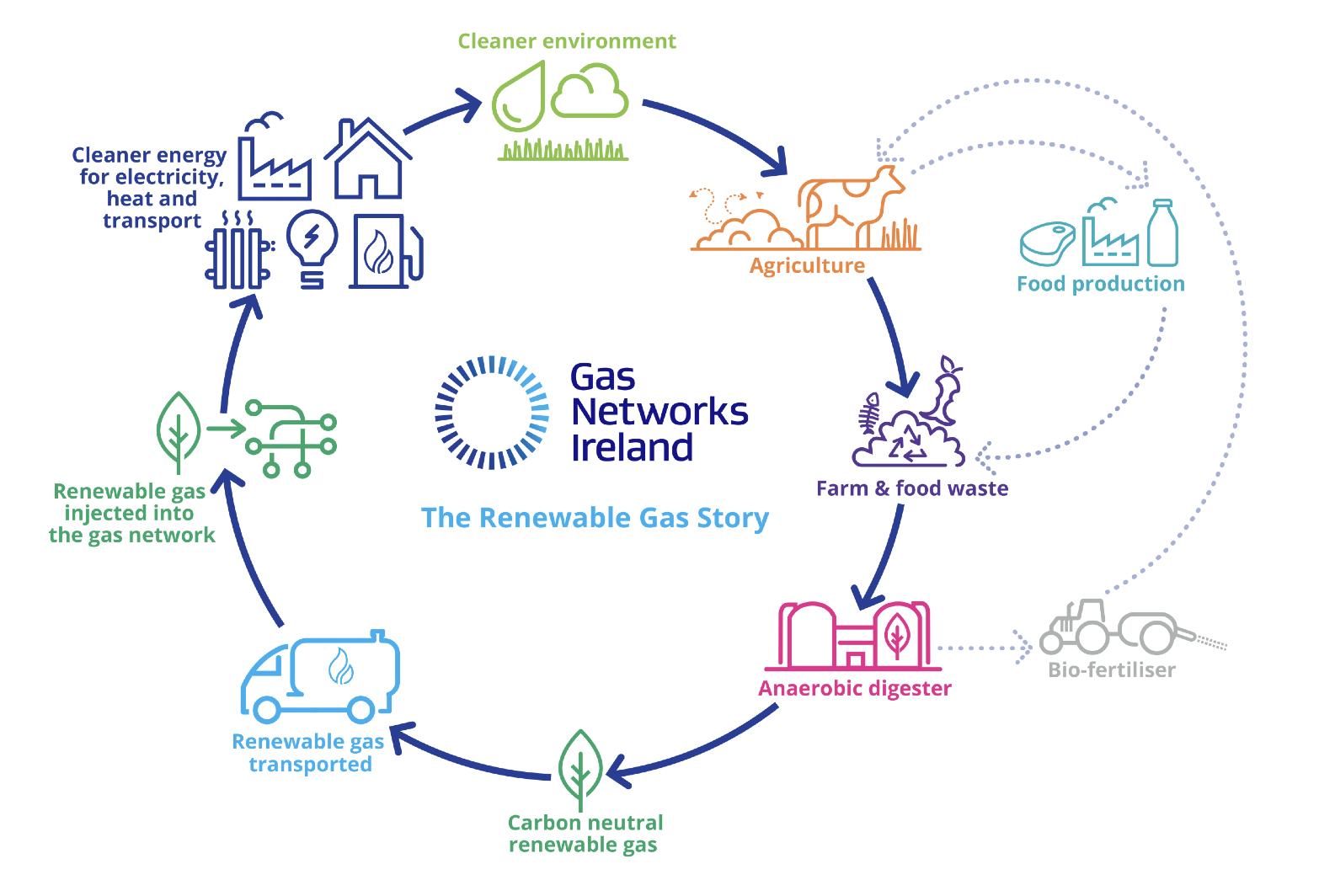
Toner Transport is an award-winning Dublin-based family business that has been at the forefront of the transport industry for four generations, working closely with its customer base to discover cleaner transport solutions.
“For those businesses who are actively integrating the use of sustainable practices into their supply chain management, they stand to gain a real competitive advantage,” Toner Transport & Logistics Managing Director, Paul Toner says.
“When one of our largest customers, the paper and packaging group Smurfit Kappa, approached the team to investigate ways they can reduce carbon emissions, we instantly knew that one way is through the switch to a CNG truck from a diesel-fuelled truck,” Toner adds.
“We work with Smurfit Kappa to deliver packaging material throughout the 32 counties of Ireland, from Cork to Dublin and everywhere in between, and the new CNG truck will clock up over 100,000km a year. Throughout the 40-year association with Smurfit Kappa, we always innovate and look at new ways we can adapt our fleet to work with them and all our customers to help achieve their business goals.
“From a business development perspective, being able to offer a lower-carbon transport solution is a strong differentiator for any business. It demonstrates a focus on sustainability when tendering for new business.”
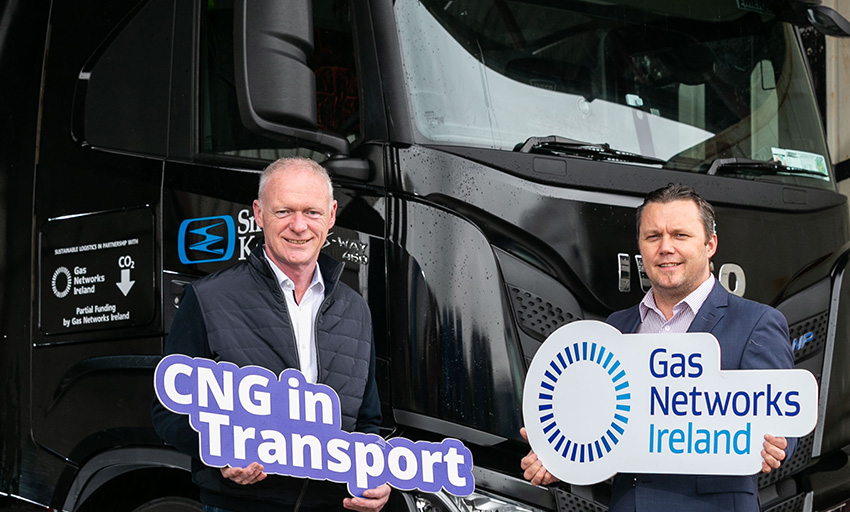
EU Clean Vehicle Directive
A key consideration for public organisations moving forward is the EU Clean Vehicles Directive, which passed into Irish law in 2021. This Directive sets targets for public procurement of clean vehicles by increasing the share of low and zero-emission vehicles tendered for by public authorities.
Ireland has agreed to adopt the maximum target of almost 40 per cent of cars and light trucks and 10 per cent of heavy-duty trucks procured from August 2021 must be cleaner vehicles. For buses, the target is even higher, with a requirement of 45 per cent to be cleaner vehicles and half of that to be zero-emission vehicles.
The CNG team at Gas Networks Ireland is available to work with agencies and councils that wish to explore CNG and renewable gas as an option to meet this obligation when procuring their heavy transport and passenger vehicles.
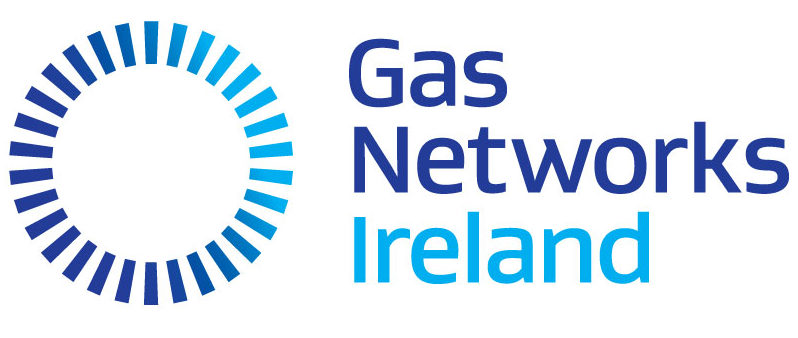
E: cng@gasnetworks.ie
W: www.gasnetworks.ie/cng


